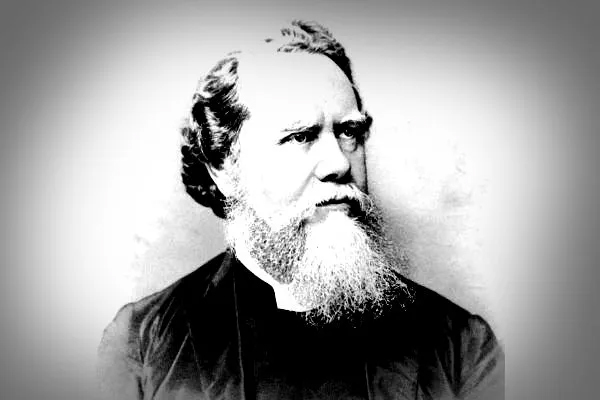Sometimes young Christians hear the command to “go” and treat it like the basic command of the Christian life. That’s a fairly short-sighted way to think. Once you go, you have to stay. If you’re always going, nothing will ever get done except the accumulation of more frequent flyer miles. In order for the go to have any meaning, you need to stay for a significant amount of time—a few weeks, a few years, maybe the rest of a life.
The question that every Christian faces is, should I move to where the gospel is not now known to be a part of a church-planting team there? Or should I join a team that either plants a new church or helps to recover a church nearby? Or should I stay in my present church, worshiping and discipling and evangelizing while supporting others who go out?
All three options can be good. They depend on who you are and on what the Lord is calling you to do.
12 FACTORS TO CONSIDER
I want to suggest twelve factors for you to consider when deciding whether to stay in your present church or move to another local or international congregation. You should consider:
1. The purpose of your move.
If you are thinking about leaving, would your purpose be largely negative—to leave because of something you don’t like in your present church? Or would your purpose be largely positive—to build up a gospel work elsewhere? If you go, it needs to be for positive reasons. Moreover, you should not leave based on a sense of guilt or false ideals about what a “mature” Christian would do. Negative purposes, misplaced guilt, and false ideals will not sustain you through the challenges of supporting a new or revitalizing work.
2. The theology and philosophy of ministry.
Does the church or planting team you are considering believe and teach God’s Word correctly? Do they have a biblical understanding of both the gospel and what a church is?
3. Evangelism.
Is the church to which you’re headed one where you can bring your non-Christian friends because you know they will hear the gospel, and will they see the gospel faithfully lived out? (Obviously, this may not be the case in a revitalizing project, at least in the beginning.)
4. Edification.
It is right for you to want to grow as a Christian. Therefore, you should work to be at a church that helps you to grow spiritually. Are you prospering in your present church? Do you think you would prosper at the other? Would leaving be spiritually damaging to you, or to someone else? Think of how the flight attendants on an airplane tell you to put the mask over your own face before placing it over the face of the person traveling with you. In the same way, it is okay for you to care for your own spiritual health first. You need to be able to breathe and grow spiritually if you want to help others.
There are three different categories of people in the church: the unhappy people, the people who are doing just fine, and the people who are growing like crazy. The unhappy people generally should not join a church planting or revitalizing team. Now, in full confession, my temptation as a pastor is to send precisely these people! But that’s not wise. If you are unhappy in your present church, it’s probably bet- ter for you to stay among the people who know you well and can help you work on the causes of that unhappiness. Besides, you just might take the unhappiness with you to the new church that needs your help.
If you belong to the third group—you are presently growing like crazy—you, too, may want to stay in your present church for a while. You’re growing! Don’t stop what you’re doing! Now, if this growth has endured for some time, perhaps talk to an elder and think through the matter together.
The best people to join a plant or revitalizing project are often people from the middle group. This is most people in a church, after all. If that’s you, you are doing fine. You’re growing, but slowly, nothing exceptional. You are stable and can be a real help to a new work. It might even give you a little jolt!
5. The strategic nature of the church’s work.
Is this a work that seems particularly important, to which you would like to contribute and feel that you can? Is there a strategic God-given vocational opportunity that would afford opportunities to support a particular church, particularly overseas? Is there a people group that you want to reach with the gospel?
6. The ministry you presently have in your church.
Consider the ministry God has given you already, and be very careful about leaving if a particular ministry depends on you. Perhaps your teaching or discipling skills are being put to good use already, or perhaps you could put them to better use in a start-up. Maybe you form relationships quickly and that would transplant well into a new location. Or maybe it takes you a long time to form relationships such that you may want to think a little more before moving. If you’re not a “net exporter” of ministry in your present church—in evangelizing, discipling, encouraging—there’s little reason to think you would be in another church.
7. The particular pastors you would be supporting.
You may have a personal relationship with a man or his family. Or maybe you have found yourself growing in a marked way under his teaching. Those are good reasons to go and support the work, and what a wonderful encouragement you could be to the leaders and others!
8. Geography.
How far do you presently live from where your church meets and most of its members live? Does your proximity lend itself to regular attendance, easy volunteering, and folding your life in with the lives of other members? How does where you live impact the evangelistic ministry you have in your neighbors’ lives, or in the lives of your work colleagues? If you live far away, might you be used to establish or encourage a good work closer to where you live? If you live close, I might discourage you from joining a new project unless you are willing to move to wherever the new project is happening.
9. Life stage.
Your life stage is a legitimate thing to think about. Are you single? Do you want to find a spouse who agrees with you theologically and practically in your understanding of the Christian life? If you are a father, will the prospective church be a good place for you to disciple your wife and children?
10. The state of your finances.
Again, it is completely legitimate for you to consider if you cannot afford your present situation, or any possible future situations. Will you be able to afford rent? Education for your children? Other living expenses? Paul observes that “if anyone does not provide for . . . his own household, he has denied the faith and is worse than an unbeliever” (1 Tim 5:8). On the other hand, have you considered whether you really need everything that you’ve assumed you needed? Be careful about your assumptions.
11. The state of your relationships with others.
You should leave a place when your relationships are in good shape, not bad shape. You should not leave in order to avoid dealing with hard relational issues.
12. Prayer.
Do you think that God would have you go to another church or to stay in your present church? We have freedom in Christ. There is often more than one good choice in front of us. Praise God for the freedom we have.
SOME SHOULD GO, SOME SHOULD STAY
Just because a move might be costly doesn’t mean you shouldn’t go. It’s been costly for most of the saints who obeyed Jesus’ command to go. And unless you live in Jerusalem, praise God that someone paid that cost and took the gospel to your nation and your city and your house so that you believe!
Is the point of all this to say that some of you should leave your churches? Kind of. Some should go to help struggling churches. Some should plant new ones. Some should go overseas. And some should stay.
Of course people have to stay for any given congregation to remain a congregation. Every church needs consistency in leadership, discipling, and long-term friendships. In fact, staying in our culture is often the countercultural thing to do, especially among the younger generation. With all the career or educational transitions that characterize modern urban life, the radical thing to do for some will be to stay in one place for decades.
Whatever you do, don’t make such decisions rashly. And don’t make such decisions in isolation, but make them in prayer and conversation with your friends who know you well, and with at least one elder who knows you.
Editor’s Note: This article was originally published on 9Marks April 26, 2016, and is an excerpt from Mark Dever’s book Understanding the Great Commission (B&H, April 2016). Original article used by 9Marks by permission of B&H; reposted on this blog with permission of 9Marks.





